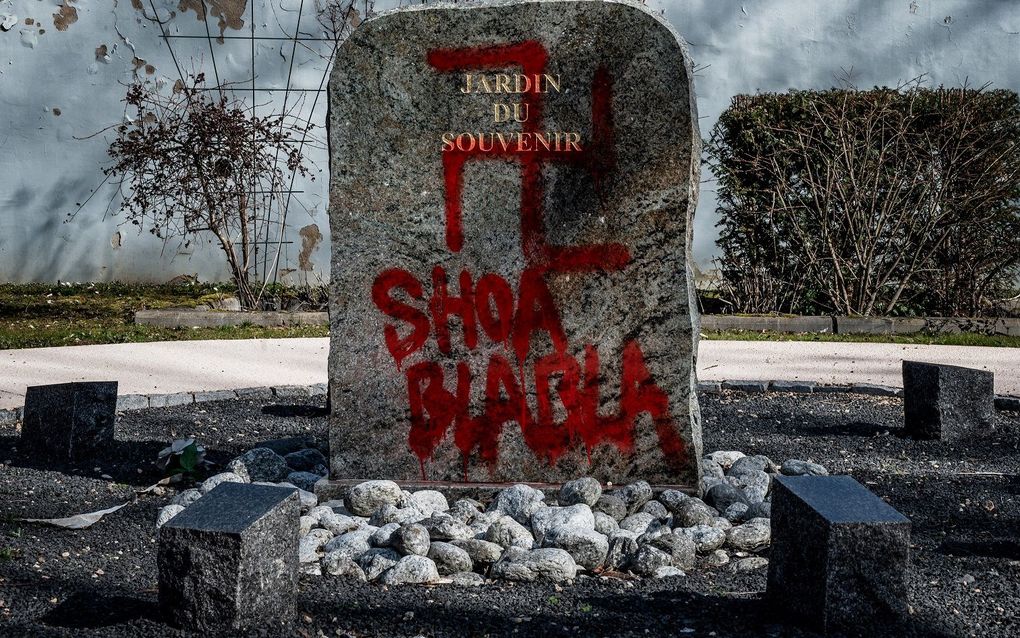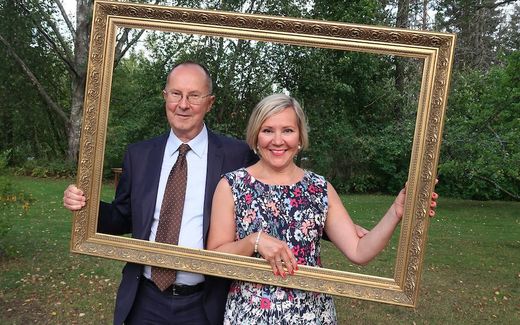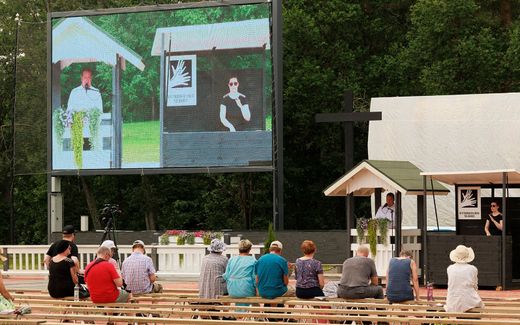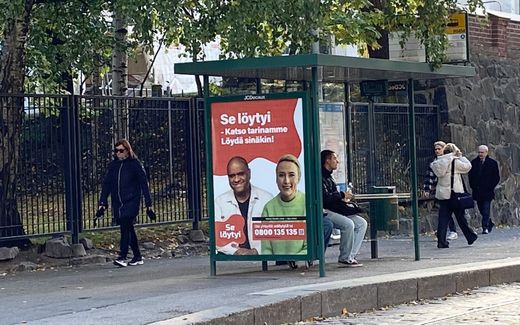Weekly column from Finland: Anti-Semitism raises its ugly head

Anti-Semitic vandalism. Photo AFP, Jeff Pachoud
Christian Life
Katharina von Schnurbein, the European Commission Coordinator on combatting Antisemitism, visited Finland last spring. She presented the EU Commission's strategy to combat anti-Semitism and promote Jewish life.
Since 2015, Mrs Von Schnurbein has held the coordinator position, which was created in response to the rise of anti-Semitism in Europe.
In December 2018, the European Union Agency for Fundamental Rights published a survey it commissioned, interviewing 16,395 Jews across Europe about their experiences of anti-Semitism.
The survey covered 12 European countries, where an estimated 96 per cent of European Jews live. Finland was not included in the research, but our neighbouring country Sweden was. The results of the survey were alarming. In France, for example, home to Europe's largest Jewish community, 95 per cent of Jews felt that anti-Semitism is a fairly or very serious problem. In Sweden, too, more than 80 per cent of Jews considered anti-Semitism to be a significant problem. In Sweden, Britain and Germany, anti-Semitism had grown faster than in other countries over the past six years. The previous survey was conducted in 2012. In Sweden, for example, few Jews dared to show Jewish symbols.
Pandemic
According to Mrs von Schnurbein, anti-Semitic hate speech has increased dramatically during the corona pandemic. The denial and misrepresentation of the Holocaust have also become more widespread.
An increase in anti-Semitism is also noticeable in Finland. This is seen, for example, in a growing number of acts of vandalism against the Jewish community. The Jewish community must invest a lot of money in security.
Last week, anti-Semitism was discussed in Finland, at least through two news items. News medium Helsingin Sanomat reported on the Blue-Black movement, which entered the party register in the previous spring and is openly racist and antisemitic. The far-right and nationalist party is trying to get one member in the Finnish parliament in next spring's parliamentary elections. When the party's chairman was asked whether his party condemns the Holocaust, the chairman refused to answer.
Apartheid
Another case that has received wider media attention concerns the Kiasma Museum of Contemporary Art in Helsinki. Many Finnish artists refuse to cooperate with Kiasma as long as the Jewish billionaire and art supporter Chaim "Poju" Zabludowicz is a member of the museum's foundation board. Zabludowicz is Finnish and the son of a Holocaust victim. The artists justify their boycott because Zabludowicz and the organisations he owns support the State of Israel, which, in their views, pursues an apartheid policy in Palestine. In fact, Zabludowicz has, on various occasions, expressed his support for the two-state solution between Israel and Palestine and his opposition to Israel's settlement policy. Mr Zabludowicz has been active in promoting peace in the Middle East.
Some politicians, journalists and Bishop Teemu Laajasalo of the Lutheran Church have condemned the artists' activities as anti-Semitic. In their boycott, the artists label a single Jew, and there is a risk of stigmatising Jews more widely.
"If a single Jew is held responsible for the actions of the state of Israel, or if a single Jew is denied his right to support Israel, or if Israel as a state is expected to do something more than other democratic states, anti-Semitism is committed," Laajasalo says in Helsingin Sanomat.
He also points out that, for the sake of history, we must be careful to identify explicitly the silent voices of Jew-hatred.
Persecution
According to Katharina von Schnurbein, awareness and understanding of anti-Semitism are exceptionally low in Finland for various reasons. In Finland, for example, Holocaust Memorial Day (January 27th) is marked in the calendar as a day for victims of persecution. That name gives the day a wrong meaning. Von Schnurbein hopes the day will be renamed Holocaust Memorial Day, as it is in other countries.

On October 27th, 2022, Antero Laukkanen, the chairman of the Parliamentary Group against anti-Semitism, and five other members of the group submitted a written question to the Finnish government regarding the day of the victims of persecution on January 27th. They proposed that its name be changed to Holocaust Memorial Day in line with international practice.
Minister of Science and Culture Petri Honkonen, responsible for calendar matters, replied to the written question in early November. He stated that he did not currently see the need for a name change.
Hate speech
Determined efforts must be made to fight against anti-Semitism. All manifestations of anti-Semitism must be addressed. Anti-Semitism is prevalent online. However, it is a form of hate speech which must not be tolerated.
The Holocaust that happened during the Second World War is a historical and widely documented fact. Yet, there are still many websites on the internet that deny it happened. This is confusing. In many EU countries, at least, Holocaust denial is illegal.

Sari Savela is editor in chief of Seurakuntalainen, a Christian news website in Finland. She is also active as a photographer. In her free time, she is involved in municipal politics.
She is married and mother of three grown-up children. Together with her husband, she does marriage work.
Related Articles






